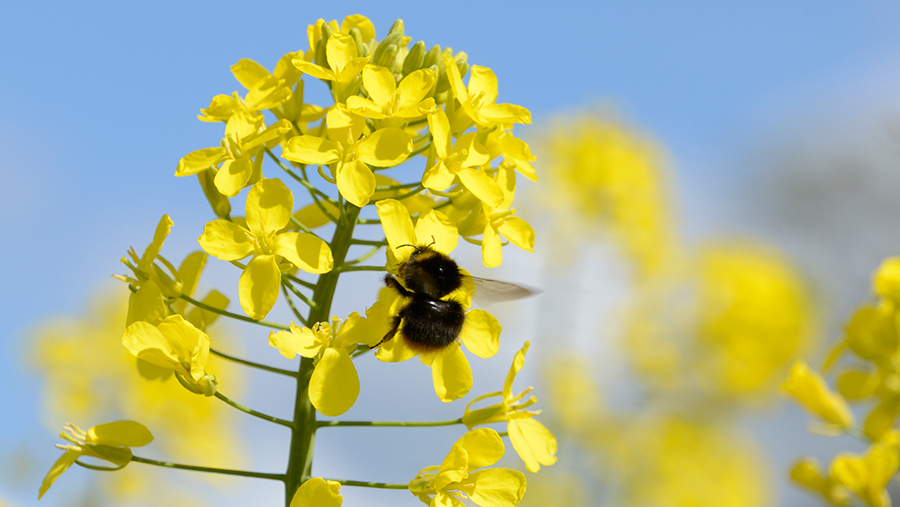NFU vows to continue bid for neonics derogation
 Free use from DSV press briefing
Free use from DSV press briefing The NFU has not given up its bid to challenge the lifting of a ban on neonicotinoid seed treatments for growers facing pressure from cabbage stem flea beetle this autumn.
Defra announced on Thursday (12 May) it had turned down the union’s application for the emergency use of neonicotinoid seed treatments.
Following a review by independent advisers to the government, sitting on the UK Expert Committee on Pesticides (ECP), farm minister George Eustice rejected the NFU’s application.
See also: Defra rejects NFU application to use neonicotinoids on OSR
NFU vice-president Guy Smith said: “This is a blow for arable farmers across the country whose oilseed rape crops are under heavy threat from cabbage stem flea beetle.
“We are disappointed with the minister’s decision; we strongly argued the case on behalf of our members.”
But he added: “We remain committed to obtaining approval for the emergency use of neonicotinoid seed treatments for this planting season.
“These plant protection products are absolutely vital in protecting England’s oilseed rape crop from pests.
“We are currently looking into making further applications.”
A further application could involve a request to use Bayer’s clothianidin, one of the three banned neonicotinoids. This follows recent research which discovered that clothianidin, did not have an adverse effect on bee health.
Earlier, Mr Smith hit out over the ban on neonicotinoids at a Crop Protection Association (CPA) conference on Thursday (12 May).
After being told by Friends of the Earth (FoE) international campaigner Nick Rau that since the neonicotinoid ban average OSR yields had increased, Mr Smith invited him on to his farm to see how difficult it was to establish the crop without neonics.
Mr Smith, who runs a mixed farm in St Osyth, Essex, told Mr Rau: “Go to the Hertfordshire area and speak to the farmers.
“I welcome you to my farm to see why I need neonicotinoid seed dressings to grow oilseed rape reliably and successfully.
“And remember, one of the biggest victims of the farmers’ failure to grow oilseed rape is the bee.
“I can take you into my flowering oilseed rape fields now. They are full of bees. If I can’t grow oilseed rape, then I will not have fields full of bees.
“The people with hives on my farm will not have their honey supplies. Think through the practicalities, please.”
